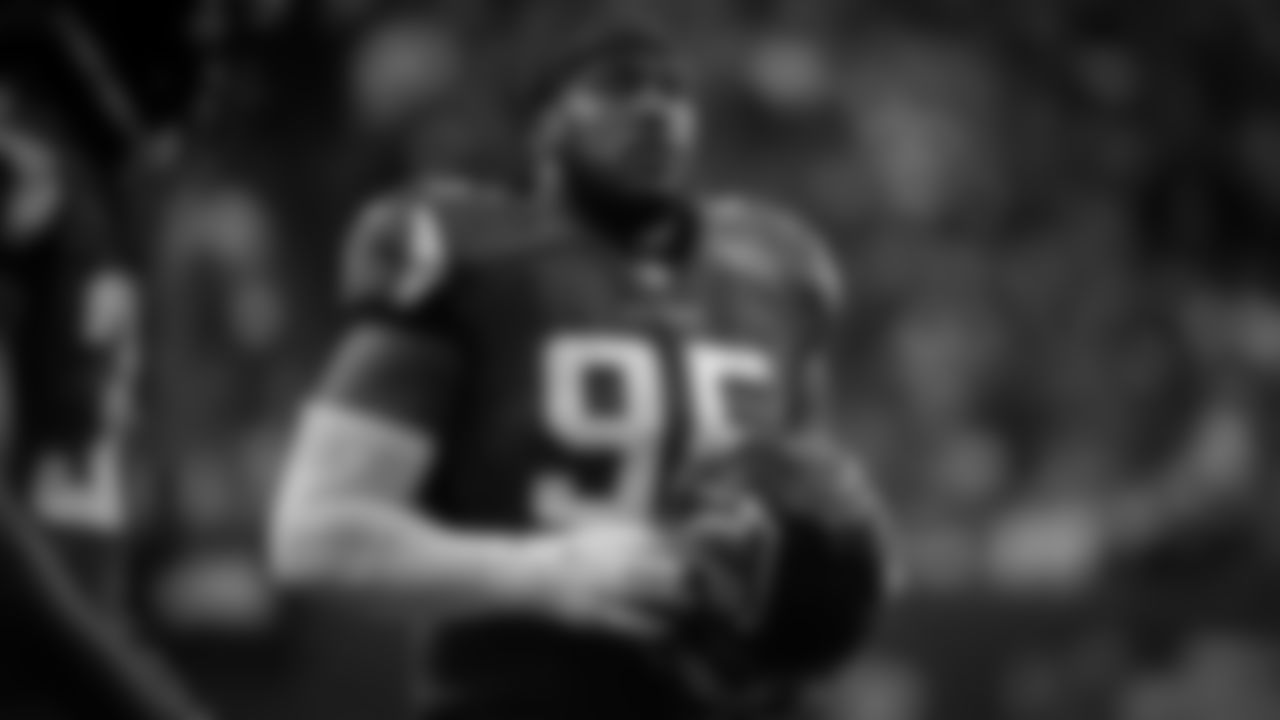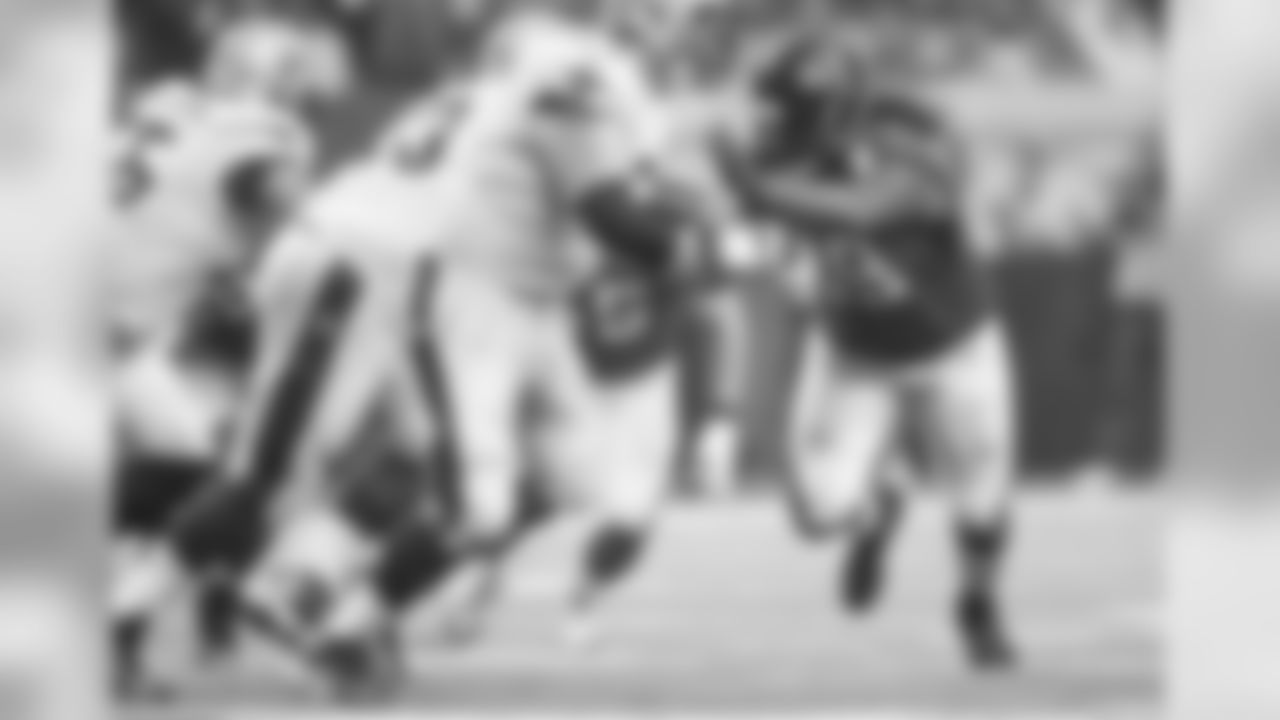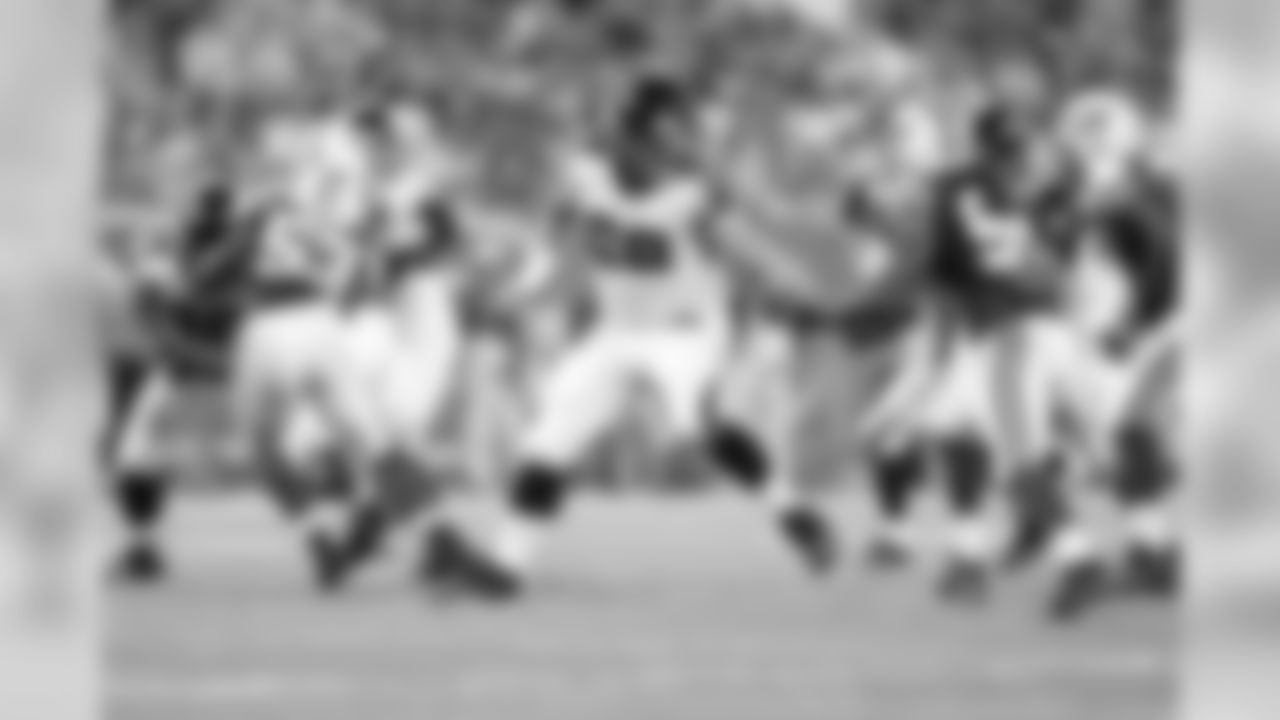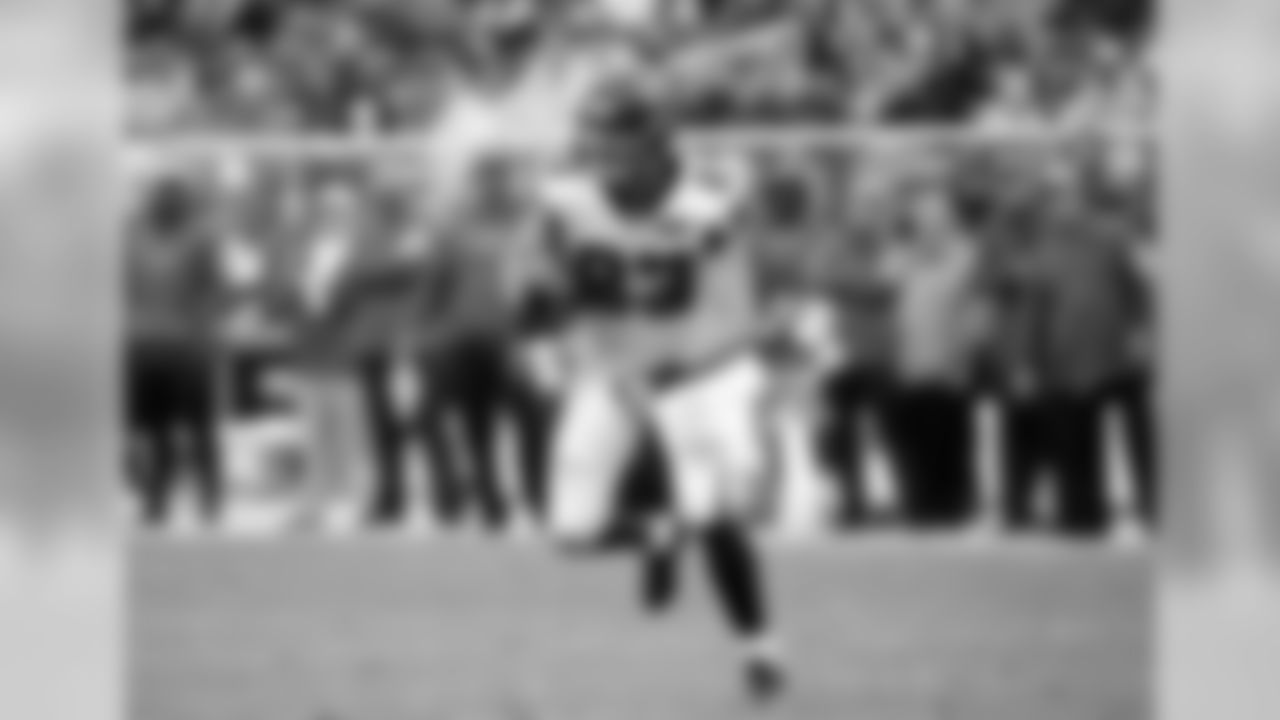Dan Quinn began coaching in 1994 at William and Mary as a defensive line coach and after two decades of carrying success in the college ranks and into the pros, he was a leading candidate for Atlanta's coaching vacancy.
By the time his Seattle Seahawks defense returned to the Super Bowl for the second straight year this past Feb. 1, Quinn's reputation as being the NFL's next great head coach was already widely recognized and Atlanta would ink the New Jersey-native to his first head coaching job on Feb. 2, 2015, the day after Super Bowl XLIX.
There are many ways to define a great coach and winning is sports' most valued feature. Quinn has shown his ability to win in both the short and long term throughout his career, even while making jumps from the collegiate to professional level.
The new head coach spent six years coaching the defensive lines for the San Francisco 49ers (2003-04), Miami Dolphins (2005-06) and the New York Jets (2007-08) before first joining Seattle in 2009. After his first two-year stint with the Seahawks, Quinn became defensive coordinator with the Florida Gators and his brilliance began to grow in the eyes of his players, other coaches and football fans.
Florida's defense was top-10 in the country both seasons under Quinn, and in that first season, they would rank eighth nationally in total defense (299.5), seventh in passing defense (166.8), and second in third-down defense (27.12 percent). His ability to lead a solid unit in both the pass defense and the run defense is one of the most underrated aspects of defensive coaches today, but for some reason this simple concept is often overlooked.
Quinn's last two seasons spent in Seattle saw the same level of dominance in all statistical categories and he oversaw the NFL's top defensive unit over the two-year span. The defense led the League with just 270.4 yards per game, 15.2 points per game and 178.8 passing yards per game while holding opponents to 91.6 rushing yards per game.
DAN'S PLAN
When Quinn's 2013 Seattle defense made it to Super Bowl XLVIII and frustrated Peyton Manning in a 43-8 rout on football's biggest stage, Quinn's ability to break down film and prepare his players was put in plain sight for the world to see. His appetite for film study throughout his career could be viewed as almost obsessive, but like anything football-related the 44-year-old head coach does, there is a passion and purpose behind it.
Quinn credits much of what he has learned from the head coach he worked with in Seattle, Pete Carroll. Rather than looking at a player that might not fit a system, Quinn developed the habits he uses now and evaluates what that player can bring to the table instead.
The result has been fast-paced, high-effort and high-energy defenses built on its players' strength. This was seen on each level of the Seattle defense, especially in the trenches. Michael Bennett came in from Tampa Bay before their Super Bowl-winning season in 2013 and joined a group crowded with talents like Cliff Avril. Bennett admitted he was skeptical that he would find his role when Seattle signed him in 2013, but Quinn assured him that he would find a way to use him to the best of his abilities, and he did.
Avril would set a Super Bowl record by scoring only 12 seconds into the game with a safety on the Broncos opening snap, and he later forced a Manning interception that led to a touchdown before becoming the first player in NFL history to win a Super Bowl after having been on a zero-win team (0-16 with 2008 Lions).
Bennett was awarded a massive four-year deal and has produced 15.5 sacks the past two seasons. Bennett's success came from Quinn's decision to move the 6-foot-4 end to tackle during nickel packages and he continued putting him in blitzes and alignments tailor made for his abilities.
The Falcons' 2016 roster is constantly evolving and we've amassed all the players in one gallery that will be updated throughout the year

CB Robert Alford

S Ricardo Allen

DT Jonathan Babineaux

OLB Vic Beasley Jr.

P Matt Bosher

K Matt Bryant

LB De'Vondre Campbell

RG Chris Chester

DE Adrian Clayborn

RB Tevin Coleman

CB Jalen Collins - Reserve Suspended List (4 Games)

T Tom Compton

FB Patrick DiMarco

RB Devonta Freeman

DE Dwight Freeney

WR Devin Fuller - IR

G Ben Garland

FS Dashon Goldson

CB C.J. Goodwin

DT Ra'Shede Hageman

WR Justin Hardy

LS Josh Harris

TE Austin Hooper

S Kemal Ishmael

DE Tyson Jackson

DT Grady Jarrett

LB Deion Jones

WR Julio Jones

CB Akeem King - IR

G Andy Levitre

C Alex Mack

T Jake Matthews

S Keanu Neal

TE Josh Perkins

G Mike Person

FS Brian Poole

LB Brooks Reed

LB LaRoy Reynolds

WR Aldrick Robinson

QB Matt Ryan

WR Mohamed Sanu

QB Matt Schaub

T Ryan Schraeder

G Wes Schweitzer

DE Derrick Shelby

TE Jacob Tamme

S Robenson Therezie

TE Levine Toilolo

CB Desmond Trufant

LB Courtney Upshaw

CB DeMarcus Van Dyke - IR

RB Terron Ward

LB Sean Weatherspoon

WR Eric Weems

LB Philip Wheeler

WR Nick Williams

LB Paul Worrilow
"He (Quinn) convinced me he would use me to the best of my abilities," Bennett said. "He's not married to a scheme; he wants to grow. He changes with the players. He's a master in the film room."
BUILDING BLOCKS
Quinn's current challenge is fixing a Falcons defense that gave up an NFL-high 389.3 yards per game last season and allowed opponents a 46.8 percent conversion rate on third down. But this undertaking will be in Quinn's hands, as he was given control by Arthur Blank over the 53-man roster.
Quinn also built a staff that he is familiar with and that shares his high-energy style of coaching. He brought in Kyle Shanahan as his offensive coordinator and has praised him for his unique offenses and how difficult it was to coach against him as a defensive coordinator over the years.
Richard Smith is Quinn's defensive coordinator and Raheem Morris is the defensive passing coordinator and assistant head coach. Quinn was coaching at Hofstra when Morris was a defensive back and they coached together at the school once Morris' playing career was finished. The connections do not stop with the coordinators, and top to bottom, the staff the franchise was able to put together this offseason was a huge achievement.
Special teams coordinator Keith Armstrong worked with Quinn in Miami and defensive line coach Bryan Cox worked together with the New York Jets. New offensive line coach Chris Morgan is another bridge within Quinn and his staff. Morgan coached as an assistant with Quinn in Seattle last year and also coached under Shanahan in Washington, which will help channel Quinn and Shanahan's philosophies to the offensive line.
Looking at Quinn's resume is certainly exciting, but the positive energy and excitement he brings to the job, ultimately is what will be reflected each time the Falcons step on the field this season.
"I'm fired up," Quinn said. "I am grateful for this opportunity. Atlanta felt like the right fit from the beginning. My goal is to build upon the foundation that has been laid here and to play a physical brand of football as we build a championship caliber team."


















